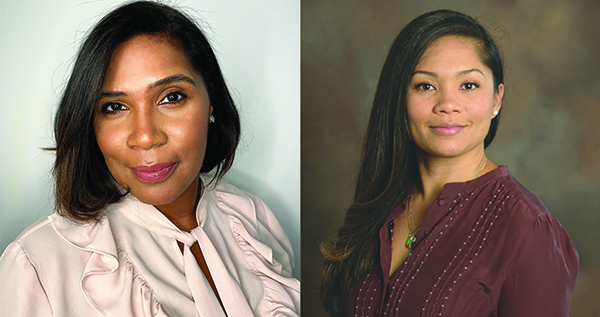DDNJ Podcast: Diversity, Equity, and Inclusion
An interview with Jacy Farkas and Lydia Ocasio-Stoutenburg

A full transcript of this episode is available in English and Spanish.
In the most recent episode of the Developmental Disabilities Network Journal's podcast, Author Insights, Jacy Farkas and Dr. Lydia Ocasio-Stoutenburg discussed the importance of diversity, equity, and inclusion (DEI).
Promoting DEI means recognizing and supporting the different facets of a person. “All of us live multifaceted lives and cultural identities. If we’re only looking at disability and not in relation to all the other facets of that individual, of that family, of that community, how can we really achieve equity or inclusion if [we’re] not paying attention to any of that?” said Farkas.
Dr. Ocasio-Stoutenburg explained DEI as, “amplifying voices and different ways of knowing and learning from one another.”
Farkas and Dr. Ocasio-Stoutenburg are leaders of the Association of University Centers on Disabilities’ Multicultural Council. AUCD’s mission is to "advance policies and practices that improve the health, education, social, and economic well-being of all people with developmental and other disabilities, their families, and their communities.” Acknowledging and respecting different perspectives betters the lives of all people. Thus, advancing DEI is key to improving the lives of people with disabilities, their families, and their communities.
The multicultural council plays a key role in promoting DEI in the network of University Centers for Excellence on Developmental Disabilities. (Every state has a UCEDD; the Institute for Disability is Utah’s.) The council aims to integrate DEI throughout all centers. The hope is that, “everybody is thinking about equity, everyone’s thinking about diversity, everyone’s thinking about inclusion.”
Sometimes we close ourselves to DEI by putting ourselves into categories. Imagine being contained to only one label, whether it be your religious identity, sexual orientation, political viewpoint, disability status, nationality, or ethnicity. It can be easy to silo ourselves into these types of categories. By only interacting with people who have a similar label to us, we miss out on gaining new perspectives, friends, and knowledge.
Both Dr. Ocasio-Stoutenburg and Farkas recognize the importance of removing those siloes. In recent years, inclusion has come a long way, but “even with the best of intentions, sometimes we still go back to the silos.” Dr. Ocasio-Stoutenburg said, “Certainly, we run the risk of really overstating how much progress we've made if we're not really keeping cognizant of how we need to keep moving toward equity. It's something we need to keep the momentum toward.”
Becoming open-minded and inclusive helps those who are marginalized to be seen and heard. It also helps our communities to grow and involve more diverse perspectives.
You can learn more about the journal and its companion podcast on our website. Subscribe to DDNJ Author Insights on Apple Podcasts, Spotify and Google Podcasts.
Resources
Case Studies in Building Equity Through Family Advocacy in Special Education
Sonoran Center for Excellence in Disabilities
About the Authors
Jacy Farkas is the Assistant Director of the Sonoran Center for Excellence in Disabilities at the University of Arizona in Tucson. She is a leader with the AUCD Multicultural Council. She also serves as a leadership institute mentor for the National Center for Cultural Competence at Georgetown University. Jacy is currently in the process of completing her doctoral degree in Family Studies and Human Development at the University of Arizona; she also holds a Master's in Information Resources and Library Science and a bachelor's in Classical Studies.
Dr. Lydia Ocasio Stoutenburg has worked with DD Councils, Parent-to-Parent health information Centers, and UCEDDS. She has also served in leadership of AUCD’s Multicultural Council. She was formerly a program manager for the Step-Up Assistive Technology Program at the University of Miami UCESS. She is a qualitative researcher, a parent of a child with a disability, and a community advocate. She received her Ph.D. in Special Education from the University of Miami and holds Master's degrees in both biology and bioethics.
They are guest editors on the upcoming special issue of the DDNJ, focused on diversity, equity, and inclusion. Keep an eye out for the publication of this issue – coming soon!

